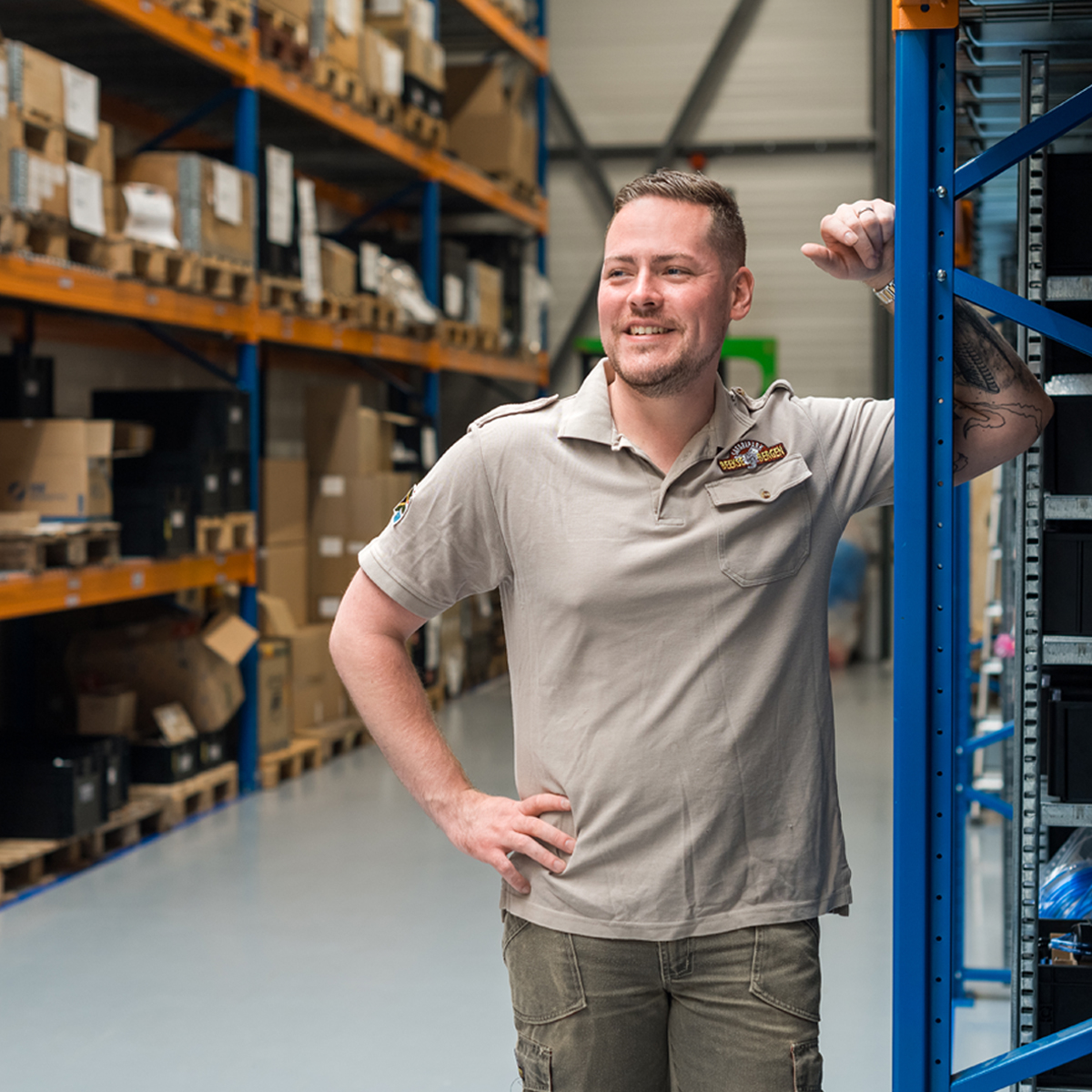From great apes to assembly
That you don't always need to have a technical background to work at Sioux Technologies is quite understandable. But the fact that even caring for great apes can be useful work experience is something Warehouse Employee Joost Peeters has to explain. 'Monkeys are just like people. By observing them for hours, I have become good in understanding body language and group dynamics.'
As is often the case with many adolescents, Joost's ambitions shot in all directions when he was young. He started an education to become an interior consultant, but that wasn't it for him after all. Teaching assistant suited him better: 'I really liked the enthusiasm of children in elementary education. But around the age of 18 I developed health problems, so I had to miss a large part of my education.' When things finally improved after 1.5 years, Joost had been out of it for so long that he had to start his education all over again. At that point, he decided to change direction yet again; he chose animal care. I have always loved animals,' he explains. Cats, dogs, fish, rats, rabbits, lizards; I have had every pet imaginable. Animals are always happy to see you, I love the peace they radiate.'
Monkey business
This study proved to be a hit. He worked at a sheep farm, on an animal holiday farm and stuck around the Beekse Bergen after his final internship. There he took care of the great apes. 'There were two groups living at the park, but the dynamics were not good - some monkeys didn't like each other. My assignment was to put together two sociable groups; quite a big responsibility. Chimpanzees are in fact very territorial, but what makes it extra challenging is that they can also pretend to be nicer than they are. If you fall for that and leave a cage open at night for a closer acquaintance, you might find a dead monkey in the morning. Such a death really hits you hard.'
Fortunately, the profession of animal care also has many bright sides. The atmosphere in the monkey groups can also be extremely good and create special moments. 'For example, when monkeys want to show that they trust each other, the males let each other hold their balls. I'm sure I don't need to explain how significant such a gesture is. Very special to see.'
Keep on growing
Listening to his stories about the zoo, one wonders why Joost eventually chose yet another future. But his explanation is logical: 'I wanted to continue growing. There are only a few zoos in the Netherlands; if you find another job at all, it is never close to home. Moreover, the salary is not particularly good and opportunities for career progression are limited. I wanted to build something more.' Joost found a logistics job at a tech company in the region, but that wasn't quite it either. When Sioux was pointed out to him from various sources, he decided to apply for a job as a Warehouse Employee in late 2021. After that, all the pieces fell into place. 'I now work in a nice, permanent team and I just work day shifts here; I like that better than the shifts at my previous employer. The salary is good and there are opportunities for personal development'.
Body language
The fact that Joost knew nothing about technology proved to be no problem for Sioux. 'For order picking, a technical background is not necessary; I learned the work by doing. Only the computer programmes took some getting used to, because we didn't use them at the zoo'. One useful quality that Joost does take with him from the zoo is the art of observation. 'I spent hours looking at great apes, which teaches you a lot about body language and group behaviour. People are more similar to great apes than they think: teasing, challenging, displaying power, copying, flirting, flattering - we all do that too. This is very useful to me in daily life, and even at Sioux it still comes in handy sometimes.'
So is Joost really completely settled now? 'If I ever win the lottery, I'll start a cat pension. But if that doesn't happen, I'll happily stick with Sioux and my Bengal cat Dobby.'
